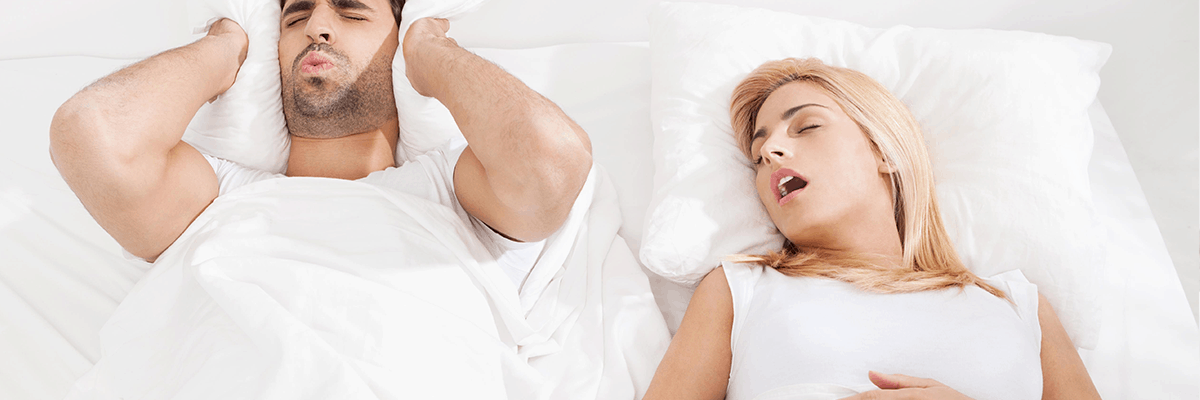When it comes to snoring, men are often blamed for keeping the household wide awake. But research shows that women snore just as frequently – and despite snoring at a similar volume to men, they don’t own up to it.
A study published in the Journal of Clinical Sleep Medicine detailed nearly 2000 patients who had been referred to a sleep disorder centre for evaluation. Researchers found that 88% of the women snored, but only 72% reported it. This was a stark contrast to the men; of the 93% who were snorers, all of them self-reported it.
The study also found that women snored just as loudly as their male counterparts. The average snoring intensity for the men was 51.7 decibels; women were close to matching it with an average of 50 decibels.
“Although we found no gender difference in snoring intensity, women tend to underreport the fact that they snore and underestimate the loudness of their snoring,” says Professor Nimrod Maimon, principal investigator and lecturer at BGU’s Faculty of Health Sciences and the head of internal medicine at Soroka. “The fact that women reported snoring less often and described it as milder may be one of the barriers preventing women from reaching sleep clinics for a sleep evaluation.”
Why is under-reporting a concern?
The gender disparity shown in this study is worrying; it highlights how few women self-report their loud snoring or obstructive sleep apnoea (OSA), which can be life-threatening if left untreated. Snoring is often the first symptom of OSA, along with:
- excessive daytime sleepiness
- gasping/choking while you sleep
- waking with a headache
- poor concentration
Around 2.5 million people in the UK are thought to have OSA, but only 33,000 have the treatment they need. Roughly 80% of cases are undiagnosed, with women much less likely to report their symptoms to their doctor.
Why don’t women admit to snoring?
Although it’s an issue for millions, there’s still a social stigma attached to snoring in women. Many believe that it’s a “man’s problem”, and that to admit to snoring makes them less feminine or desirable. Others simply refuse to believe that they’re capable of making the same deafening sounds their partners produce during the night.
But snoring is a very common issue in women. It often arises during pregnancy and menopause, becoming more apparent with age. Snoring can affect women at any point in their lives, whether it’s down to genetic disposition, medication, colds or allergies. Lifestyle choices (drinking, weight gain, smoking) also play a part in snoring developing.
If you’re a female snorer, it’s important that you make sure you’re not at risk of obstructive sleep apnoea. Ignoring OSA can lead to heart disease, stroke and diabetes. Talking to your doctor about your snoring might be a little embarrassing, but it can hugely improve your health and your sleep in the long run.
Self-care starts with your snoring
There are plenty of reasons why women snore. In many cases, simple lifestyle changes can help reduce it (cutting down on alcohol, quitting cigarettes, and losing weight).
Targeted treatments might also help. The Snoreeze YouGov survey found that 70% more males than females have purchased a snoring relief product for themselves. Lots of women don’t realise that there are different types of snoring – and each type can be treated with a different product.
If you’re unsure about what kind of snorer you might be, click here to find out more. Taking charge of your snoring can help you lead a healthier, happier, more active life – so don’t put it off any longer.

